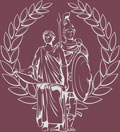‘Pitiless Pity’ in Renaissance Medicine (1545-1585)
DOI:
https://doi.org/10.25602/GOLD.bjmh.v6i2.1419Abstract
Doctors of the Renaissance were embroiled in a debate about the limits of pity during the performance of a surgery. Paradoxically, surgical practice entailed the inflicting of pain in order to prevent suffering. Contemporaries approached this difficulty in different ways, highlighting by turns the need to resist impulsive compassion and the duty to work in full consciousness of the patient’s suffering. Evoked during numerous discussions of professionalization and anatomical study, the problem of a ‘pitiless pity’ is best addressed by Ambroise Paré, who stresses the reciprocity between doctor and patient as a way out of the impasse between ineffectual empathy and the ruthless objectivity of the medical gaze.
Downloads
Published
Issue
Section
License
Copyright (c) 2020 British Journal for Military History

This work is licensed under a Creative Commons Attribution-NonCommercial-NoDerivatives 4.0 International License.



